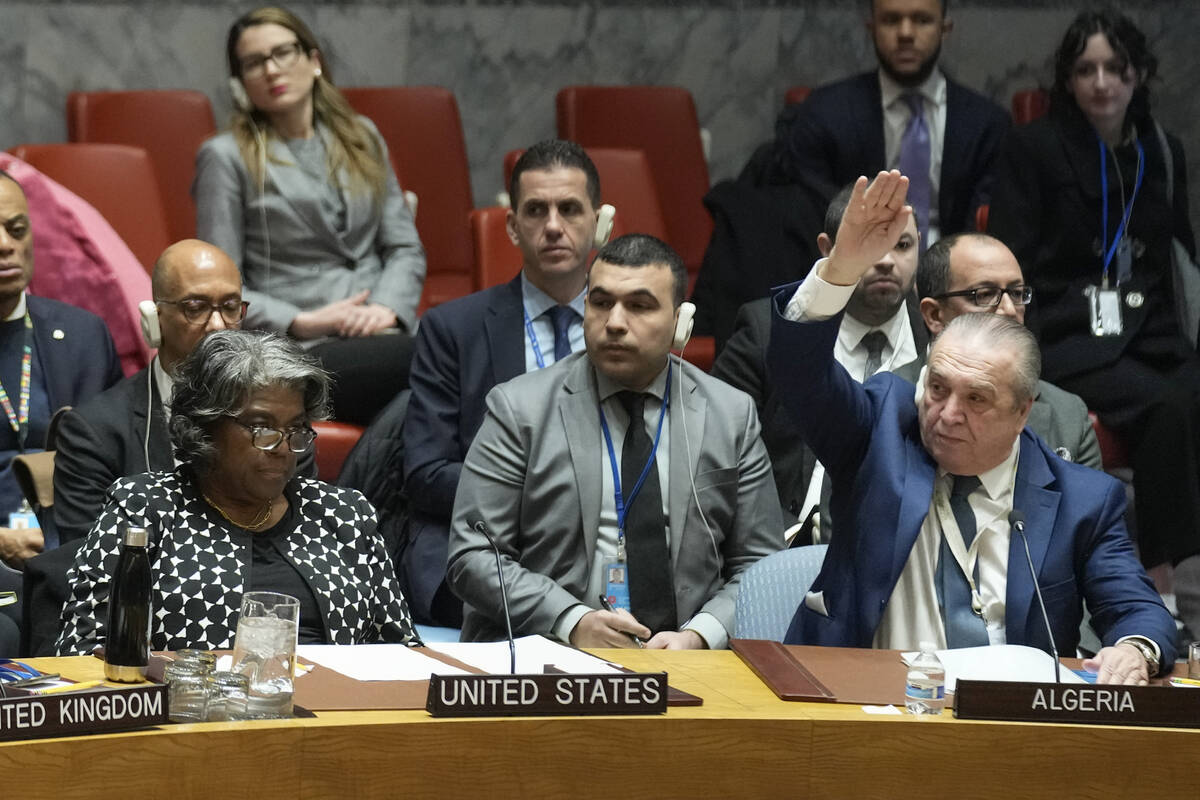U.S. vetoes U.N. resolution demanding cease-fire in Gaza

UNITED NATIONS — The United States on Tuesday vetoed an Arab-backed U.N. resolution demanding an immediate humanitarian cease-fire in the Israel-Hamas war, saying it would interfere with negotiations on a deal to free hostages abducted in Israel.
The vote in the 15-member Security Council was 13-1 with the United Kingdom abstaining, reflecting the strong support for ending the more than four-month war, which started when Hamas terrorists invaded southern Israel, killing about 1,200 people and taking 250 others hostage. Since then, more than 29,000 Palestinians have been killed in Israel’s military offensive, according to the Hamas-run Health Ministry in Gaza.
It was the third U.S. veto of a Security Council resolution demanding a cease-fire in Gaza and came a day after the United States circulated a rival resolution that would support a temporary cease-fire in Gaza linked to the release of all hostages and call for the lifting of all restrictions on the delivery of humanitarian aid.
Virtually every council member — including the United States — expressed serious concern about Israeli Prime Minister Benjamin Netanyahu’s plan to evacuate civilians from Rafah in southern Gaza and move Israel’s military offensive to the area bordering Egypt, where Israel says Hamas terrorists are hiding.
U.S. Ambassador Linda Thomas-Greenfield said the United States understands the council’s desire for urgent action but believes the resolution would “negatively impact” sensitive negotiations on a hostage deal and pause in fighting for at least six weeks. If that happens, “we can take the time to build a more enduring peace,” she said.
The proposed U.S. resolution, Thomas-Greenfield said, “would do what this text does not — pressure Hamas to take the hostage deal that is on the table and help secure a pause that allows humanitarian assistance to reach Palestinian civilians in desperate need.”
What happens next remains to be seen.
The 22-nation Arab Group could take its resolution to the U.N. General Assembly, which includes all 193 U.N. member nations, where it is virtually certain to be approved. But unlike Security Council resolutions, assembly resolutions are not legally binding.
Thomas-Greenfield told the council the United States “will work in earnest in negotiating” on its proposed resolution, leaving time for all council members to comment, “rather than impose an arbitrary deadline for the vote.”
The defeated Arab-backed resolution would have demanded an immediate humanitarian cease-fire to be respected by all parties, which implies an end to the war.
By contrast, the U.S. draft resolution would underscore the Security Council’s support for a temporary cease-fire “as soon as practicable, based on the formula of all hostages being released,” and call for “lifting all barriers to the provision of humanitarian assistance at scale.”
It is the first time the U.S. has used the word “cease-fire,” as opposed to cessation of hostilities.